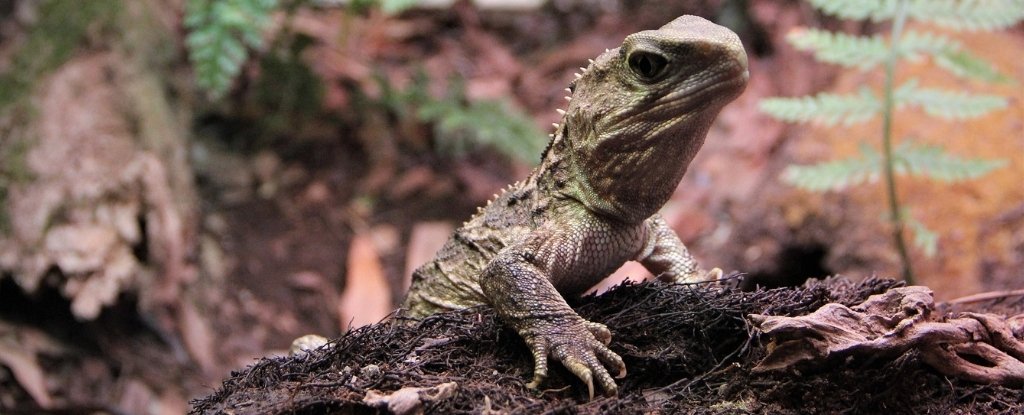
In the developmental tree of life, the reptile like tuatara from New Zealand is on a branch all to itself.
In the hour of the dinosaurs, this uncommon creature had loads of family members all around the globe, but then presently, there's nothing else like it on Earth.
As per new sequencing of the tuatara's whole genome - one of the biggest on record and 50 percent bigger than the human genome - it shows up this bizarre animal is neither one of the lizards, winged animal, nor warm blooded creature. Or maybe, it's some bizarre amalgamation of every one of the three.
As indicated by the creators of the new examination, the creature's genomic design is not normal for anything recently revealed.
"The tuatara genome contained around 4 percent bouncing qualities that are basic in reptiles, around 10 percent basic in monotremes (platypus and echidna) and under 1 percent basic in placental warm blooded animals, for example, people," says researcher David Adelson from the College of Adelaide, Australia.
"This was a profoundly strange perception and shown that the tuatara genome is an odd mix of both mammalian and reptilian [including bird] segments."
Researchers definitely knew the tuatara (Sphenodon punctatus) was something different, yet this new examination proposes it's considerably more extraordinary than we suspected.
Found exclusively in New Zealand, the tuatara - which does incredibly take after a reptile to the undeveloped eye - is viewed as a taonga, or 'extraordinary fortune' for the neighborhood Māori. What's more, in light of current circumstances.
These nighttime animals can live for a century, withstand too chilly temperatures, hold their breath for up to 60 minutes, and see light out of a third 'parietal eye' on their heads.
Today, the species' nearest family members are snakes and reptiles, however to call them family members is somewhat similar to calling a kangaroo a relative of people. Their regular progenitor really returns around 250 million years.
All through that gigantic measure of time, tuatara have remained the sole individuals from the age-old reptilian request known as Rhynchocephalia.
"This species speaks to a significant connect to the now-terminated stem reptiles from which dinosaurs, present day reptiles, winged animals and warm blooded creatures developed, and is therefore significant for our comprehension of amniote advancement," the examination group writes in their paper.
The tuatara holds highlights of the old and long-wiped out creatures from which every one of these gatherings advanced from. The scientists that sequenced its genome note this species is the slowest-advancing reptile yet broke down, more so than some other reptile or snake.
Thusly, tuatara are an immediate line back to our birthplaces, however their proceeded with presence on our planet is anything but a definite wager.
While their numbers are doing affirm now, as tuatara are secured on every one of the 35 islands they are found on in New Zealand, a quickly changing atmosphere could spell their inevitable fate.
The sex of future tuatara relies vigorously upon the temperature encompassing the eggs, and a dangerous atmospheric devation could prompt an excessive number of guys being conceived, sending the regenerative cycle into an awkwardness.
The creators of the new examination state tuatara "remain endangered inferable from their exceptionally limited appropriation, dangers forced by ailment and changes in sex proportions actuated by environmental change that could especially influence their endurance."
Find out about the species is urgent for its proceeded with endurance. Be that as it may, this genomics research is significant for different reasons, as well.
The exploration was done in organization with the Ngātiwai, the Māori iwi (clan) who hold kaitiakitanga (guardianship) over the tuatara populaces; such a coordinated effort isn't constantly considered in protection research.
"This association - which, as far as anyone is concerned, is exceptional among the genome ventures embraced to date - had a solid functional spotlight on creating assets and data that will improve our comprehension of the tuatara and help in future protection endeavors," the writers compose.
"It is trusted that this work will shape a model for future genome activities that try to meet access and advantage sharing commitments to Indigenous people group."
Sharing information is significant, as is sharing credit. The Ngātiwai Trust Board is recorded among the creators of the paper.






No comments